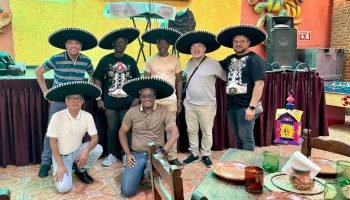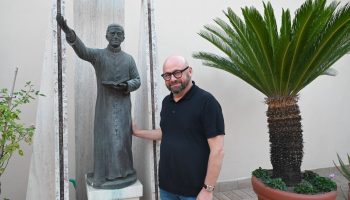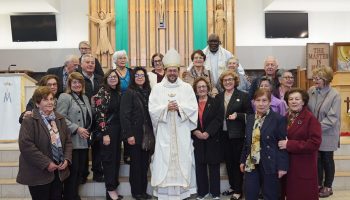
The IMC formators during their ongoing formation course from 7th to 12th of July at Bunju, Tanzania, had the opportunity to share their experience with Dr. Ignatia Mbatta who was invited to give a Psychological Perspective on Emotional Maturity: the role of Emotional Intelligence, Self- Awareness and Transformative Leadership.
By Paulino Madeje *
In her presentation, Dr. Mbatta started with a prayer from 2 Corinthians 4:7, a text that reminds us of the treasure that God has put in us, though weak and fragile our nature is. Embarking on this theme, she accentuated that self-awareness, as a source of wisdom and transformational leadership, is an important issue that requires an ongoing journey of growth. “Self-knowledge or self-awareness is the issue of ‘who Am I? What is the purpose of my existence?, she insisted.
“Self-awareness enhances emotional regulation, promotes better decision making, builds stronger interpersonal relationships, encourages growth and learning”, she emphasized. It further “prevents burnout and emotional exhaustion, reducing psychological projection and strengthening identity and self-esteem, and it is a pathway to maturity”, she explained.

Dr. Mbatta also provided the formators with some steps to develop psychological self-awarness, such as daily reflection or journaling, seeking feedback from trusted people, counselling, etc. She posed some questions to reflect personally. These are: what emotions do I most frequently experience? Joy? Frustration? Anxiety? How do I express or suppress these emotions? Did I speak openly or stay silent? Did I act out of calm reflection or reactivity? How do I typically handle discomfort, stress, or correction?
On transformational leadership, she pointed out that it is a leadership style that inspires individuals and communities to grow, transcend personal interests, and pursue a shared vision for the common good. It is based on values such as integrity, inspiration, growth, and servant-heartedness. “What characterizes a transformational leadership, or how should a transformational leader be”? She posed a question. There are various aspects, they should lead by example, be inspirational, stimulate creativity and critical thinking. They should further understand their emotions and self-regulate them, should believe in the potential of their people and create a culture of learning and resilience. She went on to mention the core values of transformational leadership which are: integrity, vision, empowerment, collaboration, resilience, inclusiveness, creativity, etc.

“We, as Christians and missionaries, take Christ as our model of a transformational leader. Why?”, She asked. It’s because He is the fulfilment of the characteristics of such a leader. Christ inspired, healed, corrected, forgave, and formed disciples to transform the world. He led by love, not by control; by example, not by domination. He further emptied himself, leading through service and humility (Cfr. Philippians 2:6–11). He empowered them, giving them hope that they will do greater things (Cfr. John 14:12).
Dr. Ignatia Mbatta finished the sharing by calling the formators to reflect on the following questions: as a formator am I a transformational leader? What are some of the challenges which hinder me from being transformational? How can I address these challenges emanating within me and from others?
* Father Paulino Madeje, IMC, Tanzania. Coordinator of Communication for Africa.



